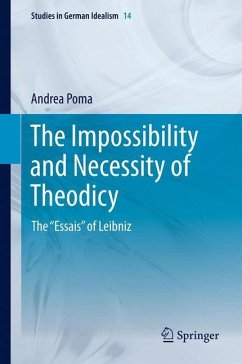
Can Death Be a Harm to the Person Who Dies?
Versandkostenfrei!
Versandfertig in 6-10 Tagen
113,99 €
inkl. MwSt.
Weitere Ausgaben:

PAYBACK Punkte
57 °P sammeln!
lt is with great pleasure that I write this preface for Or Li's book, wh ich addresses the venerable and vexing issues surrounding the problem of whether death can be a harm to the person who dies. This problem is an ancient one which was raised long ago by the early Greek philosopher Epicurus, who notoriously argued that death is at no time a harm to its 'victim' because before death there is no harrn and after death there is no victim. Epicurus's conclusion is conspicuously at odds with our prereflective and in most cases our post-reflective-intuitions, and numerous strategies have therefore...
lt is with great pleasure that I write this preface for Or Li's book, wh ich addresses the venerable and vexing issues surrounding the problem of whether death can be a harm to the person who dies. This problem is an ancient one which was raised long ago by the early Greek philosopher Epicurus, who notoriously argued that death is at no time a harm to its 'victim' because before death there is no harrn and after death there is no victim. Epicurus's conclusion is conspicuously at odds with our prereflective and in most cases our post-reflective-intuitions, and numerous strategies have therefore been proposed to refute or avoid the Epicurean conclusion that death cannot be an evil after all. How then are we to account for our intuition that death is not just an evil, but perhaps the worst evil: that may befall us? This is the key issue that Or Li addresses. Or Li's book explores various alternative approaches to the complex and difficult issues surrounding Epicurus's notorious argument and provides a defence ofthe intuitively plausible conclusion that death can indeed be a harm to the person who dies. This challenge to Epicurus's claim that death is never a harm to the person who dies is developed by way of a detailed exploration of the issues raised not only by Epicurus, but also by his many successors, who have responded variously to the challenging issues which Epicurus raised.














